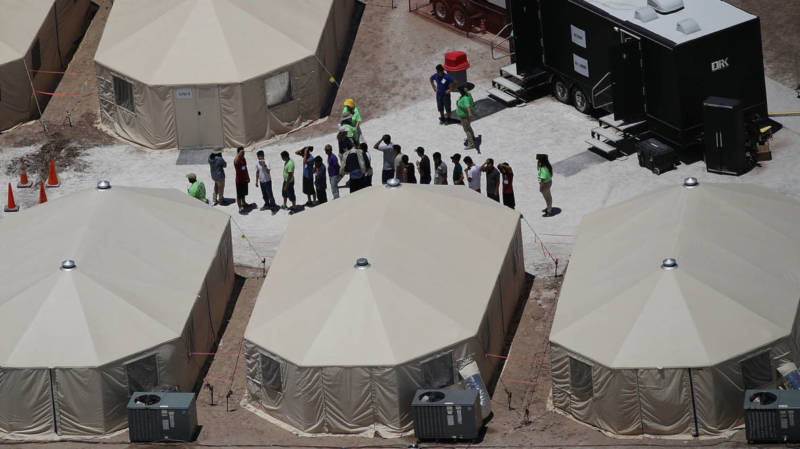A panel of judges on Thursday dismissed an appeal by the U.S. government that contended detained immigrant children might not require soap during shorter stints in custody under a longstanding settlement agreement.
Soap, Sleep, Sanitary Bathrooms Essential to Migrant Kids' Safety, Judges Rule

A three-judge panel for the Ninth U.S. Circuit Court of Appeals in San Francisco dismissed a challenge to a lower court decision that authorities had failed to provide safe and sanitary conditions for the children under the 1997 settlement.
The U.S. government had argued that authorities weren't required to provide specific accommodations, such as soap, under the agreement's requirement that facilities be "safe and sanitary" and asked the panel to weigh in. The appellate judges disagreed and dismissed the government's case.
"Assuring that children eat enough edible food, drink clean water, are housed in hygienic facilities with sanitary bathrooms, have soap and toothpaste, and are not sleep-deprived are without doubt essential to the children's safety," the panel wrote.
The ruling followed a hearing in June where a U.S. government lawyer said the agreement was vague and didn't necessarily require that a toothbrush and soap be provided to children during brief stays in custody. The government argued that such requirements would be changing the agreement.
Leecia Welch, senior director of legal advocacy and child welfare at the National Center for Youth Law, said the panel's decision wasn't surprising.
"It should shock the conscience of all Americans to know that our government argued children do not need these bare essentials," she said.
Peter Schey, president of the Center for Human Rights and Constitutional Law, said he was hopeful the ruling would "send a strong message that these children have to be treated humanely."
"These children cannot be detained in unsafe conditions or unsanitary conditions," said Schey, an attorney who argued the case for the plaintiffs.
The Department of Justice didn't immediately respond to a request for comment.
U.S. District Court Judge Dolly Gee in Los Angeles ruled in 2017 that authorities had breached the agreement — widely-known as the Flores settlement — after young immigrants caught on the border said they had to sleep in cold, overcrowded cells and were given inadequate food and dirty water.
Since then, problems in the facilities have persisted. Gee has appointed an independent monitor to evaluate conditions.
The issues date back years. They have drawn increased attention amid a rise in the number of children and families, mostly from Central America, arriving on the southwest border.
The Flores settlement between advocates for young immigrants and the U.S. government says children should be held in facilities that meet certain standards and be released as soon as is reasonably possible, which has been considered to be about 20 days.
Farida Jhabvala Romero contributed to this report.
